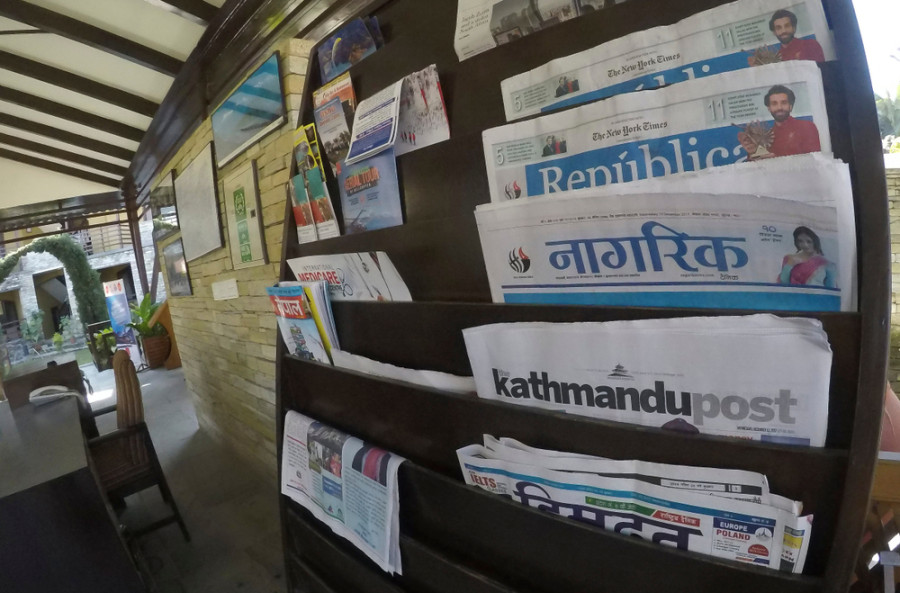National
Proposed media bill envisions a new press council with increased government role in Nepal
A new Media Council bill, which aims to give sweeping powers to the self-regulatory body overseeing the press, has raised alarm as information rights activists and journalists say the new council could increase direct attacks on the press.
A new Media Council bill, which aims to give sweeping powers to the self-regulatory body overseeing the press, has raised alarm as information rights activists and journalists say the new council could increase direct attacks on the press.
The bill, which aims to replace the existing Press Council Act and was registered on Thursday, will have more authority to issue hefty fines and give the government more say in the hiring and firing of the council members.
Dilip Thapa Magar, the vice president of Federation of Nepali Journalists, says increasing the government’s role in council member recommendation process could jeopardize free press.
“Newsroom critical of the government might end up in trouble more frequently if political appointees increase in the new council being envisioned with greater authority to take stern actions,” said Magar.
Federation of Nepali Journalists on Friday afternoon called all media groups and publications to condemn the provisions in the proposed bill, saying it went against the spirit of press freedom.
The drafting of the bill started last year and had generated controversy when the government quietly moved the bill to the parliament on Wednesday, bypassing a critical consultation phase with stakeholders and the public. The consultation phase, which has been in practice for a long time, is considered a critical element of the democratic exercise of lawmaking.
The secrecy surrounding the Media Council bill, and now the stringent provisions in it, have raised fears of more sanctions on press freedom, as the existing laws are already being used to stifle journalists and the media. A recent Freedom Forum report pointed out how this government is increasingly using legal channels to circumscribe freedom of the press.
Journalists and information rights activists say the government can use the agency to misuse their power because of the ministry’s role in recommending—and firing—committee members. They also say the freewheeling provisions in the bill allows anyone who feels that a report violates press ethics——not just the person or organization about whom the report is— to file a complaint against the reporter, editor or publisher.
Earlier, the council could ask for clarification, apology, blacklist certain press organizations, direct to the court for compensation, but now the bill aims to give the council authority to issue monetary punishment ranging from Rs25,000 and up to one million. The provisions in the proposed bill will also give the council greater power to write to the concerned authority to take action against media organizations if they violate press ethics as defined by the government.
“The government is trying to turn self-regulating body like the press council into a Chief District Officer, which goes against the principles of this kind of agency,” said Taranath Dahal of Freedom Forum, a civil liberty rights organization.
The government has defended the new bill saying the self-regulatory nature of the bill is intact and the provisions are aimed at helping the council better resolve the issues it faces.
But government officials say the new measures would improve things for the media. In a brief phone interview, Rishiram Tiwari, spokesperson for the Ministry of Communication and Information Technology said, “We aren’t trying to threaten press liberties, and are only trying to strengthen and better manage the council."




 17.12°C Kathmandu
17.12°C Kathmandu













